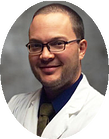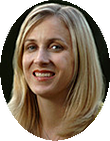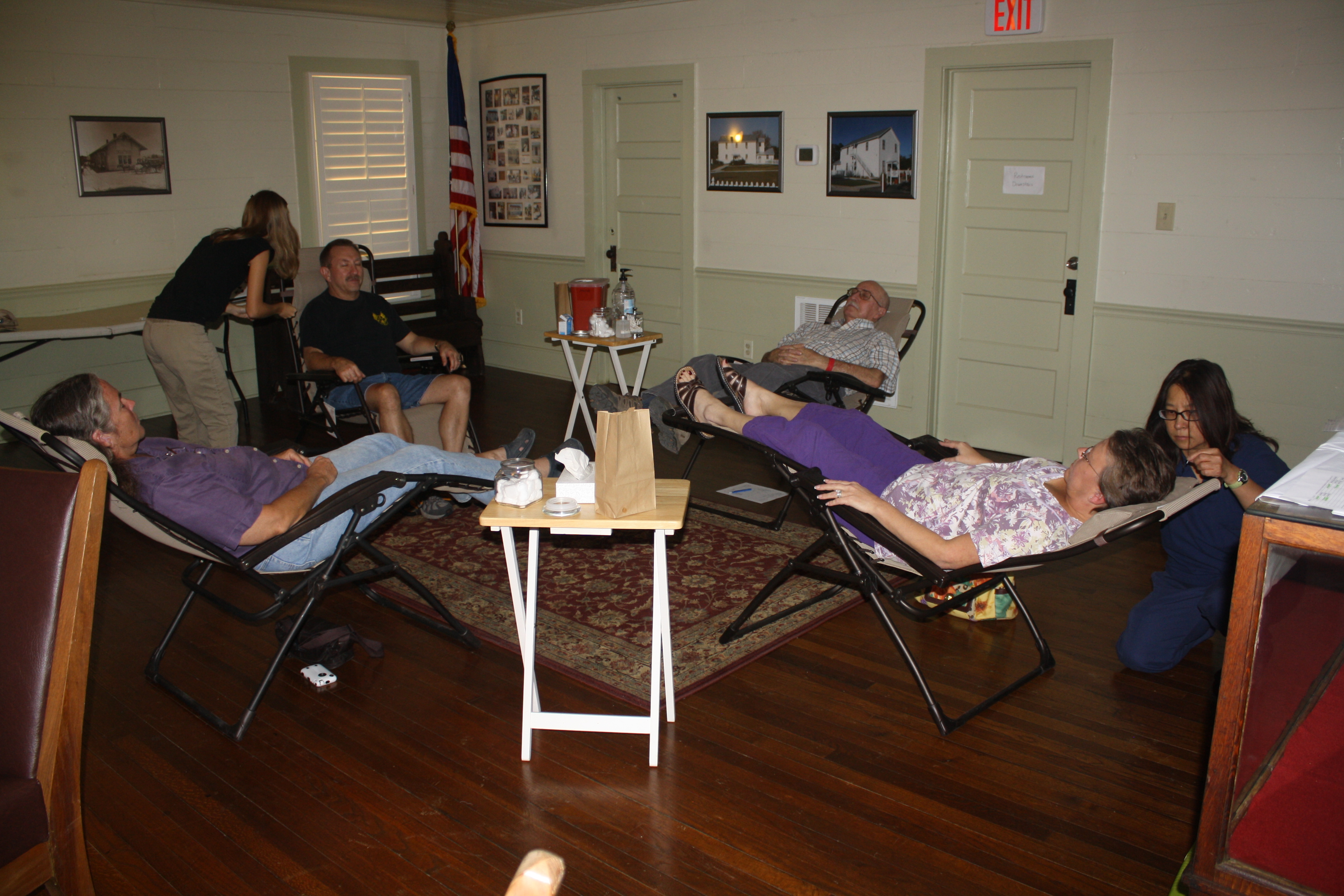
When you chose to become a licensed acupuncturist (LAc) you chose a fulfilling, exciting, and sometimes challenging career. To become a practitioner of acupuncture and Oriental medicine you must complete a 4-year master’s degree, pass the national certification exams, and apply for state licensure. As many practitioners of Chinese medicine will attest, that is just the beginning of the journey. AOMA alumni share their experiences starting their acupuncture practices.
 Jacob Godwin, Class of 2005
Jacob Godwin, Class of 2005
Where do your practice?
Spokane, Washington | godwinacupuncture.com
What type of practice are you in?
Private
What were your biggest challenges in starting practice?
Having to realize where and how acupuncture fits into modern healthcare was a grueling lesson. Most acupuncturists are woefully unprepared to face the harsh realities of practice, and I was no exception. Learning to prioritize my understanding of biomedicine, particularly the biological approach to acupuncture, and to communicate effectively with other doctors has made an enormous difference. Those skills plus time and clinical effectiveness have helped me create a successful practice.
What has been the most rewarding part of starting practice?
Making a living by helping thousands of people simply by following my passion is the best reward for me.
What else would you like to share with prospective and current students?
Acupuncture has the potential to make huge contributions to medicine. The future of acupuncture relies on our participation in science and research. Learn your biomedical science. Indulge in the mystery and the tradition of acupuncture and Oriental Medicine, but don't let them prevent you from developing acupuncture into a modern practice based on science. Accept nothing on authority or tradition alone. Press, probe, and investigate every nook and cranny of acupuncture and Oriental Medicine theory.
 Alison Larmee Born, Class of 2006
Alison Larmee Born, Class of 2006
Where do your practice?
Wilmington, North Carolina | capefearacupuncture.com
What type of practice are you in?
Private, Community
What were your biggest challenges in starting practice?
Educating the public on the advantages of community acupuncture (though I provide both community and private treatments). Finding the right space (physical building) to accommodate both styles as my practice grows.
What has been the most rewarding part of starting practice?
Being able to help many different walks of life by offering both private and community. Being my own boss, setting my own hours. Making a profit!
What else would you like to share with prospective and current students?
Starting your own practice is very rewarding but also extremely time consuming. There are no days off like when I was an independent contractor for another practice. Now with a 10 month old child some days running the business, attending to patients and my child seems really... well, overwhelming. It's not an undertaking to be taken lightly - it's wonderful in many ways - but oh so hard in others. Just my two cents. Feel free to contact me through my website if you'd like to talk about challenges and rewards.
 Alyson Bayer, Class of 2009
Alyson Bayer, Class of 2009
Where do your practice?
Conroe, Texas | clearchoiceacupuncture.com
What type of practice are you in?
Private, Collaborative
What were your biggest challenges in starting practice?
Getting over the fear of starting my own business.
What has been the most rewarding part of starting practice?
The most rewarding part of having my own practice is the confidence it has given me. I also enjoy setting my own schedule to give myself plenty of time with my family and to relax and enjoy life.
What else would you like to share with prospective and current students?
Networking is one of the best ways I have found to grow my business. This field is very much up and coming. More and more people are seeking alternatives to allopathic, overly busy doctors with little time for them. One thing I do in my practice is to make sure to give every single one of my patients enough of my time to listen to them every time they come into see me.
 Cynthia Clark, Class of 2011
Cynthia Clark, Class of 2011
Where do your practice?
Sarasota, Florida | longevitywellnessclinic.com
What type of practice are you in?
Private
What were your biggest challenges in starting practice?
Figuring out my identity as a practitioner
What else would you like to share with prospective and current students?
It's who you are as a person that has the greatest effect on your patients.

 Gregory Carey, Class of 2011
Gregory Carey, Class of 2011
Where do your practice?
Old Bridge, New Jersey | oldbridgeacupuncture.com
What type of practice are you in?
Private, Collaborative
What were your biggest challenges in starting practice?
Generating Patient Visits
What has been the most rewarding part of starting practice?
The opportunity to engage in a profession that I deeply care about is the most rewarding aspect of running my own acupuncture clinic.
What else would you like to share with prospective and current students?
Follow your passion and you can create success in what you do.
 Joshua Saul, Class of 2012
Joshua Saul, Class of 2012
Where do your practice?
Atlanta, Georgia | SunWellATL.com
What type of practice are you in?
Private, Collaborative
What were your biggest challenges in starting practice?
I think this question should be " What ARE your biggest challenges and starting practice?" While I am seeing a study number of patients I am still not where I'd like to be. I think some of the biggest challenges to starting a practice is getting a system in place so that each new patient who walks in the door has a consistent, rewarding experience.
Right now, my biggest challenge is getting all the administrative things done that I should have done in school like building a fully functional website that helps people know I’m out here and able to help. Other administrative items include getting my LLC setup, setting up my practice management software and electronic health records (using Office Ally) and getting together promotional material like a business name, logo, business cards, informational rack cards, signs and other material. If I had done this in school, even if I didn’t know what my business name would be, the content would be in place and all name information could be easily changed.
Part of the system should also educate new patients as to what we do, how it works and why it's valuable to them and their healthcare. Figuring out how to do this properly has definitely been challenging and is an ongoing work in progress.
What has been the most rewarding part of starting practice?
The most rewarding part for me has been feeling like I have started to create something out of nothing. While starting a business is extremely difficult I feel good about saying that I have worked harder at this than anything in my life. School was challenging but starting a business was by far much more difficult. As I start to see patients and watch them get better there is something humbling, motivating and exciting in the realization that I am serving my purpose.
What else would you like to share with prospective and current students?
I love what I do and I knew it when I started school. What I didn't know was how much work was in store for me after school! If you are a current student my advice is to get started now! Whatever it is that you can do to start your business do it now! Decide in what area you want to specialize, build your website, start figuring out your business model, start saving some cash - the list is long and time in school is not the hard part. If you aren't working on school and getting your business ready a solid 40 or more hours a week you aren't working hard enough. Start now. It will be worth it.
 Abigail Karp, Class of 2013
Abigail Karp, Class of 2013
Where do your practice?
Austin, Texas | reproductiveacupuncture.com
What type of practice are you in?
Collaborative
What were your biggest challenges in starting practice?
It's a challenge knowing where to begin when starting your own practice, and I found it to be a blessing to join a practice of experienced acupuncturists.
What has been the most rewarding part of starting practice?
The most rewarding party of starting practice has been getting to know a new community of patients and working closely with seasoned acupuncturists in my chosen specialty. It has been amazing having the opportunity to gain new insights from my coworkers. So much learning and growing happens outside of acupuncture school, and I've been loving having the chance to continue to grow!
What else would you like to share with prospective and current students?
Trying to keep an open mind and being flexible has been very helpful for me in finding my way. It's hard to know what sort of practice you will enjoy until you try different options post-graduation.


 AOMA alumna, Diane Lowry happily resides in Glen Allen, VA where she is the owner and Licensed Acupuncturist of HealthFocus Acupuncture and Oriental Medicine. She holds Diplomate status in both Oriental Medicine and Asian Bodywork Therapy from the National Certification Commission for Acupuncture and Oriental Medicine (NCCAOM) and is an American Organization for Bodywork Therapies of Asia (AOBTA)-Certified Practitioner. www.HealthFocusAcupuncture.com
AOMA alumna, Diane Lowry happily resides in Glen Allen, VA where she is the owner and Licensed Acupuncturist of HealthFocus Acupuncture and Oriental Medicine. She holds Diplomate status in both Oriental Medicine and Asian Bodywork Therapy from the National Certification Commission for Acupuncture and Oriental Medicine (NCCAOM) and is an American Organization for Bodywork Therapies of Asia (AOBTA)-Certified Practitioner. www.HealthFocusAcupuncture.com

 Jacob Godwin, Class of 2005
Jacob Godwin, Class of 2005 Alison Larmee Born, Class of 2006
Alison Larmee Born, Class of 2006 Alyson Bayer, Class of 2009
Alyson Bayer, Class of 2009 Cynthia Clark, Class of 2011
Cynthia Clark, Class of 2011
 Gregory Carey, Class of 2011
Gregory Carey, Class of 2011 Joshua Saul, Class of 2012
Joshua Saul, Class of 2012 Abigail Karp, Class of 2013
Abigail Karp, Class of 2013
-w.jpg) By contracting with a medical insurance carrier (e.g., United Healthcare, Horizon, Cigna, etc.), you are joining a medical referral network. Each insurance carrier introduces a proprietary fee structure for its participating healthcare providers. Becoming familiar with electronic billing practices is an essential, though not overly difficult, skill for the rendering provider. Developing a business relationship with a third-party insurance clearinghouse such as Office Ally is advisable and will create efficiencies for your practice.
By contracting with a medical insurance carrier (e.g., United Healthcare, Horizon, Cigna, etc.), you are joining a medical referral network. Each insurance carrier introduces a proprietary fee structure for its participating healthcare providers. Becoming familiar with electronic billing practices is an essential, though not overly difficult, skill for the rendering provider. Developing a business relationship with a third-party insurance clearinghouse such as Office Ally is advisable and will create efficiencies for your practice..jpg?width=300&height=200&name=clinic_bastrop_outreach_2011_(4).jpg) 4. Create a "disruptive" business model.
4. Create a "disruptive" business model. Gregory holds a Bachelor of Science in Biology from the University of Richmond and obtained his Master of Acupuncture and Oriental Medicine at AOMA Graduate School of Integrative Medicine. Gregory holds a Diplomate of Oriental Medicine from NCCAOM and is licensed by the New Jersey State Medical Board in acupuncture. His professional background is in research oncology and pharmaceutical trials, teaching and not for profit organizations.
Gregory holds a Bachelor of Science in Biology from the University of Richmond and obtained his Master of Acupuncture and Oriental Medicine at AOMA Graduate School of Integrative Medicine. Gregory holds a Diplomate of Oriental Medicine from NCCAOM and is licensed by the New Jersey State Medical Board in acupuncture. His professional background is in research oncology and pharmaceutical trials, teaching and not for profit organizations.